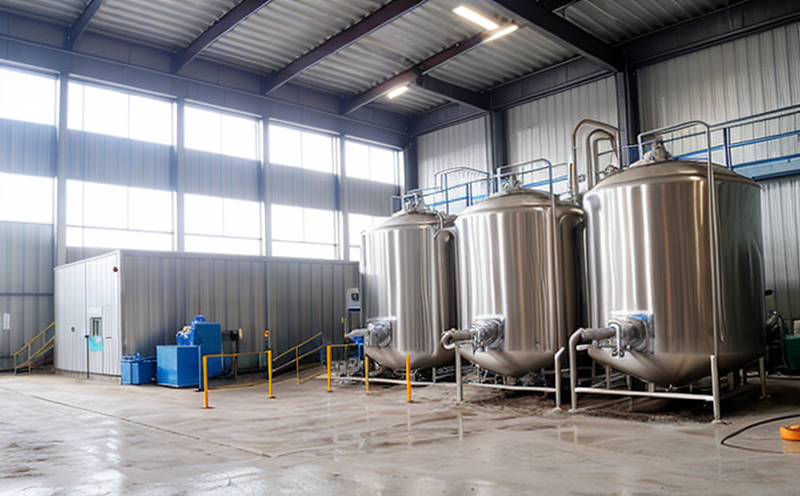ISO 25101 Pesticides by LC MS Test in Process Water
The ISO 25101 standard is designed to ensure that pesticides are accurately detected and quantified in process water. This comprehensive testing method employs Liquid Chromatography-Mass Spectrometry (LC-MS) technology, which offers unparalleled sensitivity and specificity for identifying trace amounts of pesticides.
Our laboratory specializes in this ISO-compliant test to help clients meet stringent regulatory requirements across various industrial sectors such as manufacturing, pharmaceuticals, food processing, and chemical production. By ensuring that process water is free from harmful pesticide residues, we contribute significantly to environmental protection and public health.
The testing procedure involves several critical steps: sample collection, extraction, clean-up, and finally, analysis using LC-MS. The accuracy of these processes can influence the overall results, which is why our laboratory adheres strictly to ISO 25101 guidelines throughout each step. Our team of experts ensures that every test follows best practices to deliver reliable data.
Regulatory compliance plays a crucial role in this process. Many industries are required by law to monitor and control pesticide levels in their wastewater before discharge into the environment. The ISO 25101 standard provides clear guidelines for these tests, ensuring consistency and comparability of results across different facilities.
The application of LC-MS technology allows us to detect even minute traces of pesticides, making it an indispensable tool for maintaining high standards of water quality in industrial processes. This precision is particularly vital when dealing with sensitive operations where even small amounts of contaminants could lead to significant operational issues or environmental damage.
Furthermore, the use of LC-MS ensures that we can identify not just common pesticides but also emerging compounds and metabolites that may pose risks if present in process water. This capability is especially important for industries undergoing continuous improvement and innovation, as it helps them stay ahead of regulatory changes and technological advancements.
Our service goes beyond mere compliance; it provides actionable insights to help clients optimize their processes and enhance overall water quality. By offering detailed reports that include not only detection limits but also trends over time, we empower decision-makers with the information they need to implement effective mitigation strategies.
Benefits
- Enhanced Compliance: Ensure full adherence to ISO 25101 standards for pesticide detection in process water, reducing the risk of non-compliance penalties.
- Precision Detection: Utilize LC-MS technology to identify and quantify pesticides at extremely low concentrations, ensuring high-quality process water.
- Environmental Protection: Minimize the release of harmful pesticides into the environment, thereby contributing to sustainable industrial practices.
- Risk Management: Provide early warnings about potential contamination issues, allowing for prompt corrective actions and minimizing downtime.
Why Choose This Test
- ISO Compliance: Our laboratory strictly adheres to ISO 25101, ensuring accurate and reliable test results that meet global standards.
- Precision Technology: Employ Liquid Chromatography-Mass Spectrometry (LC-MS) for unparalleled sensitivity in detecting pesticides.
- Expertise: Our team of experienced scientists brings specialized knowledge to each test, ensuring high-quality results every time.
- Comprehensive Reports: Deliver detailed and actionable reports that provide insights into process water quality and trends over time.
Customer Impact and Satisfaction
By choosing our ISO 25101 Pesticides by LC MS Test in Process Water service, customers can expect significant benefits that translate directly into improved business performance:
- Regulatory Compliance: Stay ahead of regulatory changes and ensure continuous adherence to international standards.
- Operational Efficiency: Reduce downtime by quickly identifying and addressing potential issues before they escalate.
- Environmental Responsibility: Contribute positively to environmental conservation efforts, aligning with sustainability goals.
- Customer Confidence: Build trust with stakeholders by demonstrating your commitment to quality and safety standards.





